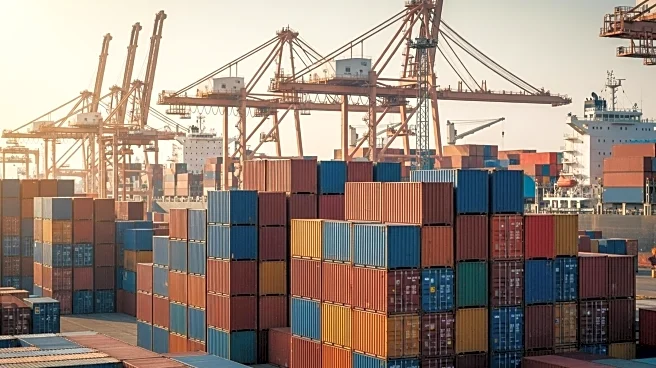What's Happening?
The World Shipping Council (WSC) has released a report detailing deficiencies in cargo safety, based on government cargo inspection programs. The report reveals that 11.39% of inspected shipments in 2024 had deficiencies, a slight increase from the previous year. These deficiencies include mis-declared and undeclared dangerous goods, incorrect documentation, and improper packing, which pose serious safety risks such as ship fires. The report draws on data from port state inspections, emphasizing the need for correct declaration and safe packing of goods. WSC President & CEO Joe Kramek highlighted the importance of addressing these gaps to protect crews, ships, cargo, and the environment.
Why It's Important?
The findings of the WSC report are crucial for the shipping industry, as they underscore persistent safety issues that could lead to catastrophic incidents. With over one in ten shipments showing deficiencies, the report calls attention to the need for improved cargo safety measures. This has implications for shipping companies, port authorities, and regulatory bodies, as they must collaborate to enhance safety protocols and compliance with international standards. The report also serves as a call to action for more governments to contribute data, which could lead to a more comprehensive understanding of global cargo safety trends and facilitate better risk management strategies.
What's Next?
The World Shipping Council is set to launch an industry cargo safety program aimed at improving cargo screening and inspections. This initiative will focus on accurate reporting, better screening, clear standards, and practical guidance to reduce risks and protect lives, cargo, and the marine environment. Stakeholders in the shipping industry will need to engage with this program and adapt their practices to align with its recommendations. Increased collaboration between port states and shipping companies is expected to enhance the effectiveness of cargo safety measures and reduce the incidence of dangerous goods mishandling.











